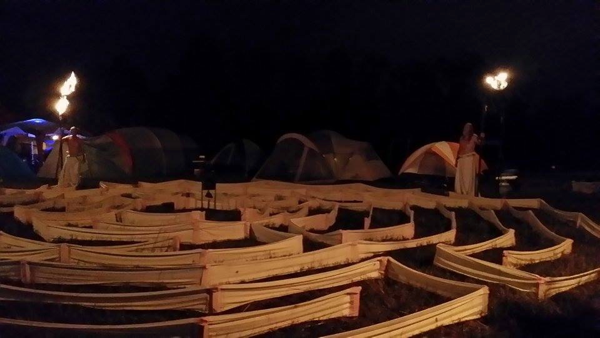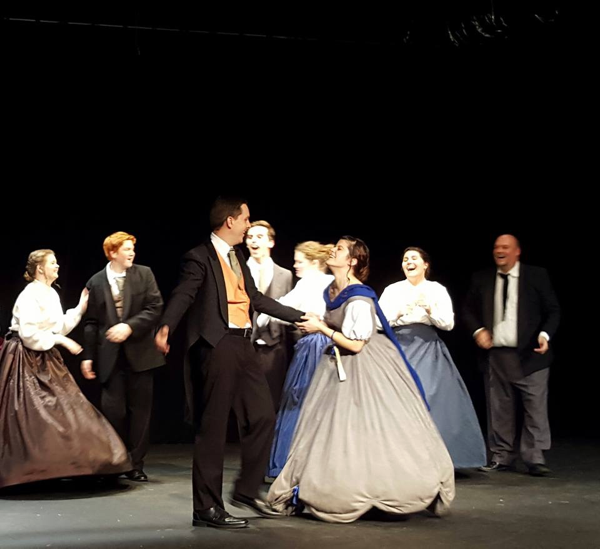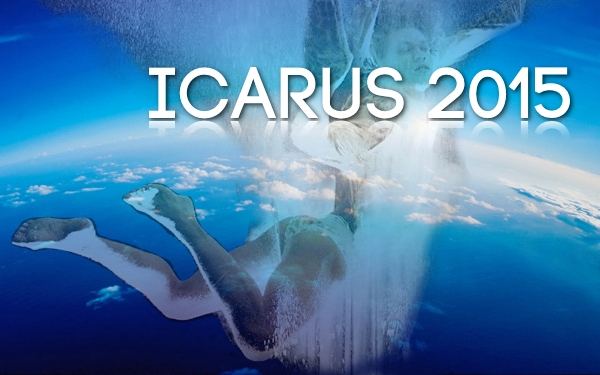I’m in the mountains, on our annual Lichtenbergian Retreat, wherein we are each to bring some creative work on which we’ve been slacking. Since my recent work on Seven Dreams is the very definition of “slacking,” i.e., “no work at all,” I’ve brought it with me to jumpstart the process again.
(To be fair: 1) I ran out of text; 2) I was getting ready for and attending Alchemy; 3) my son got married. Still, I bet Wagner didn’t let things like that slow down his ego work.)
At any rate, I’m in the Blue Ridge in a great cabin with four other Lichtenbergians—none of whom, I’ve noticed, seem to have brought any work at all, but let that pass. I’ve brought the snippets of text which I have demanded respectfully requested begin and end Dream Three. Hey, they’re Scott’s actual text from the original play, so I figure it’s not a problem.
Even if it is a problem, even if he ends up sending me a completely different text, I figure I can play around with scene setting and thematic/harmonic bits that I can then use with the new text. As I said last night, measures full of sixteenth notes can be very flexible. Bring on the words!

Here’s the part you’ve been reading for: whining.
In Dream Three, Theseus and the Minotaur have had enough chitchat about their respective ritual fates and are getting it on. The four lines of the Minotaur’s opening aria return, this time with a partner. So, ecstatic duet, right?
Since I haven’t written any real music since August, I’m just aiming to produce crap the entire weekend, just getting my crapping muscles back in shape. I don’t expect to use anything that comes out of my head in the next 48 hours—though one never knows.
My problem is that many of the halfway decent bits I’ve scribbled down are more Broadway than La Scala. Don’t ask me what the difference is, there is one and I know it when I hear it. So do audiences, and so do critics. So I keep scribbling, breaking up some of the Broadway tunes with odd harmonies or melodic intervals, and it sounds more La Scala, but then it’s not very soaring or ecstatic.
Yes, I am modifying my music to please unknown critics. On a personal level I have no desire be known as the opera world’s Frank Wildhorn or Andrew Lloyd Webber: singable tunes, loved by unsophisticated audiences but scorned by all right-thinking persons. As Noel Coward said, “It’s extraordinary how potent cheap music is.”
On an artistic level, opera voices are not show voices, and the same melodies that fit comfortably on Neil Patrick Harris’s voice or Patti LuPone’s sound weak under Erwin Schrott’s or Anna Netrebko’s. You want to please the audience and please the singers, and so you have to move them through the notes differently, if that makes sense, and there’s more than a little element of athletic showing-off in the opera world. If you make it too easy, they’ll disdain it.
I’ll get it done. I just have to get back in the groove of pushing it all out—instead of blogging about it—because if I can produce a big enough pile of crap, there should be a pony in there somewhere, right?




